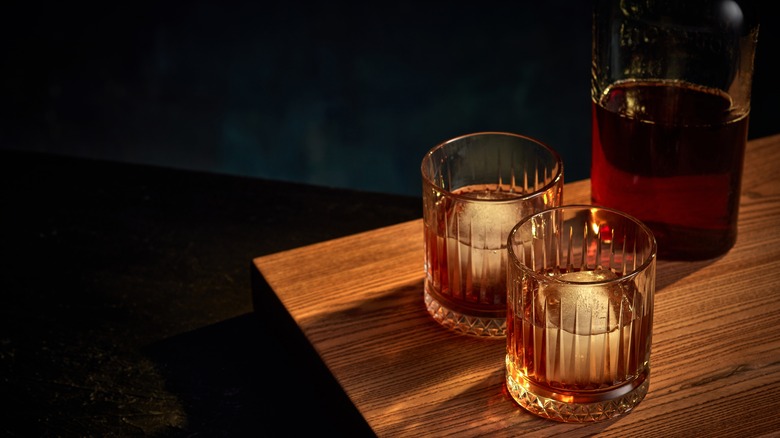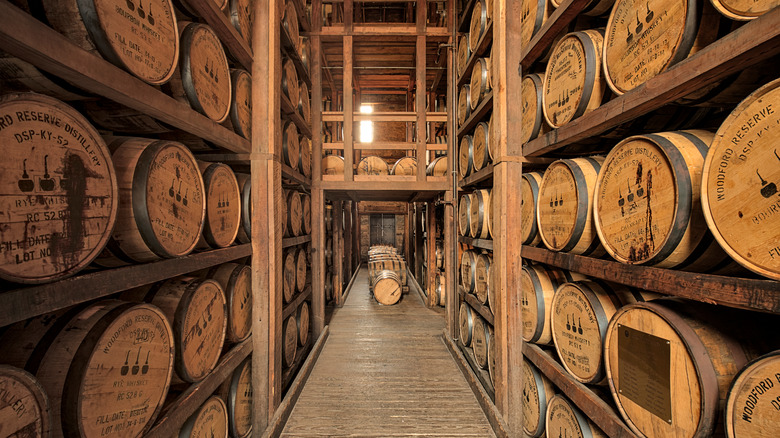Why Our Bourbon Expert Would Never Buy A Bottle Aged Less Than 4 Years
Depending on who you ask, the age of a bourbon is either one of the best indicators of quality you can look for or nothing but a fun fact that ultimately reveals very little about how good the whiskey will be. Tasting Table recently chatted with Chris Blatner, Executive Bourbon Steward and creator of @urbanbourbonist, and took the opportunity to get his thoughts on bourbon age statements.
When we asked whether he had any hard and fast rules when it came to age, he told Tasting Table, "The bare minimum for me would be a bourbon that is at least four years old." That may seem like a strict cutoff, but most bourbons you're familiar with pass the bar. By law, all bourbon must be aged for at least two years if the producers want to label it as bourbon and the minimum for bottled-in-bond bourbon is four years. Although not a requirement for all bourbons, Blatner felt that four years of maturation "typically has given whiskey enough aging to take on some great flavors from the barrel and smooth out some of the rough edges and volatile flavors that can be found in whiskeys less than four years old."
Bourbon, like all whiskey, starts off as a clear, largely flavorless liquid known as white dog. Much of the character and color comes from the bourbon barrel itself. Moreover, aging bourbon for too long can lead to an infusion of bitterness and sourness, though some amount of aging is necessary.
Understanding a bourbon's age statement
If you want to start using a bourbon's age as a guideline, you ought to learn how to understand the age statement on a bottle. "Any bourbon that is less than four years old should have some type of age statement on the label as required by regulations," Chris Blatner told Tasting Table. "[It] will usually be found on the back of the label. If a label does not have any age statement you can safely assume it is over four years of age. After reaching four years of age producers do not have to put an age statement on the label."
Even if bourbon producers aren't required to label the age of the whiskey, many of them still will. As Blatner mentioned, anything younger than four years is required to be disclosed to consumers. Then there's an undefined middle ground where you likely won't get an age statement. Once a bourbon gets up to around eight years old, distilleries will again start offering the age statement. That's not because they have to, but because they've taken the time and effort to make a bourbon that old and they want to use that detail as a selling point.
There's no limit on the maximum age of a bourbon, and there are some rare bottles that age for 20 years or more with high price tags to match. In recent years, however, small distilleries have experimented with young bourbons — with Cleveland Whiskey innovating a "fully aged" 24-hour process.

